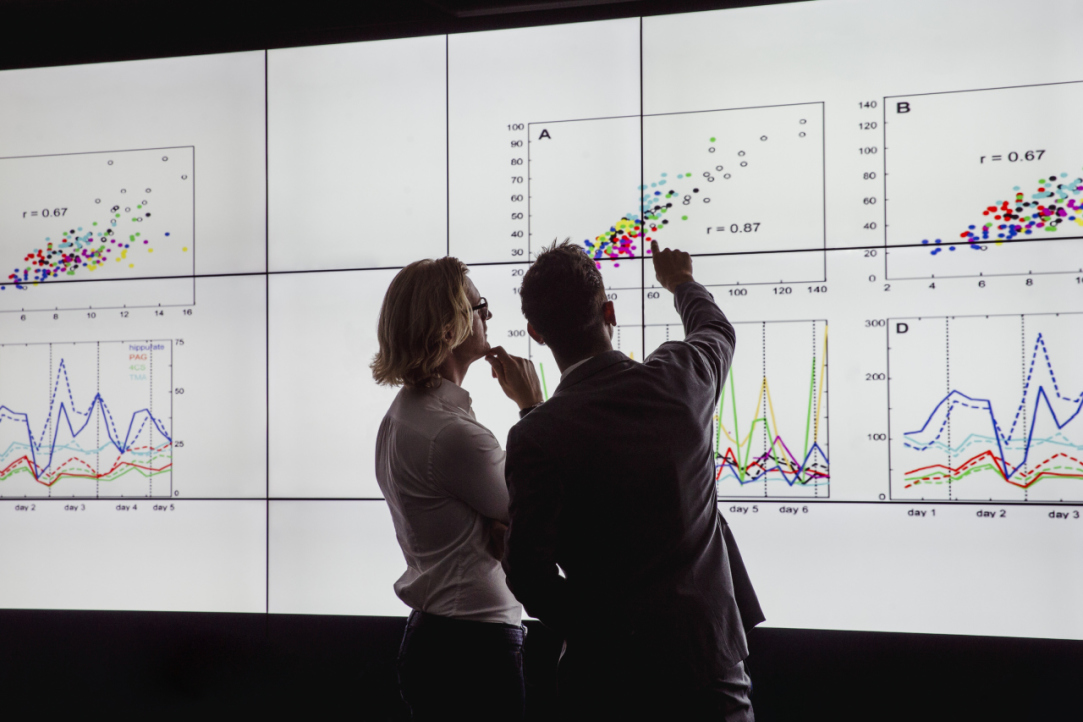- A
- A
- A
- ABC
- ABC
- ABC
- А
- А
- А
- А
- А
- HSE University
- Faculties
- Faculty of Economic Sciences
- School of Finance
- News
- HSE Faculty of Computer Science Launches ‘AI in Mathematical Finance’ Laboratory
-
The School
-
RESEARCH ACTIVITIES
- Laboratories
- Series “Advanced studies in emerging market’s finance” at Springer Nature o Networking with international academic associations
- Networking with international academic associations
- Research seminars
- International PhD workshop
- The International Seminar «ESG Transformation»
-
RESEARCH WORKING GROUPS
- Research Working Group "Innovations in the banking sector, its financial stability and prudential regulation"
- BUSINESS EDUCATION
- Networking with business associations
- Networking with professional associations
- Center for Research on Non-Financial Reporting
-
DATABASES
119049 Moscow, Russia
11 Pokrovskiy boulevard, room S629
Phone:
+7 (495) 772-95-90*27447, *27947, *27190
+7 (495) 916-88-08 (Master’s Programme Corporate Finance)
- Email: df@hse.ru
Head of Corporate Finance Research Center, Dr., tenured professor

+7495-772-95-90 (add. 27447)

+7495-772-95-90 (add. 27947)
The HSE School of Finance is the leading Russian competence center in the field of corporate finance, business valuation, banking, stock market, risk management and insurance, accounting and audit.
HSE is the first Russian university in the global ranking "QS - World University Rankings by subject", 2022 in the subject area of Accounting and Finance. Moreover, the university is the 1-st in the rating "THE World University Rankings by subject" in the subject area of Business & Management Studies, 2022
Cherkasova V. A., Nenuzhenko I.
Journal of Economic Integration. 2022. Vol. 37. No. 1. P. 54-92.
Electronic Journal of Applied Statistical Analysis. 2022. Vol. 15. No. 1. P. 187-210.
Kolade S. A., Semenova M.
Financial Economics. FE. Высшая школа экономики, 2022. No. WP BRP 87/FE/2022.
Управление финансовыми рисками. 2022. Т. 70. № 2. С. 108-120.
In bk.: The 8th International Conference on Information Technology and Quantitative Management (ITQM 2020 & 2021): Developing Global Digital Economy after COVID-19. Vol. 199: The 8th International Conference on Information Technology and Quantitative Management (ITQM 2020 & 2021): Developing Global Digital Economy after COVID-19. Manchester: Elsevier, 2022. P. 798-805.
Korablev D., Poduhovich D.
Journal of Corporate Finance Research. 2022. Vol. 16. No. 1. P. 136-145.
Olkhovik V., Lyutova O. I., Juchnevicius E.
Научно-исследовательский финансовый институт. Финансовый журнал. 2022. Vol. 14. No. 2. P. 73-90.
Churyk N. T., Anna Vysotskaya, Kolk B. v.
Journal of Accounting Education. 2022. Vol. 58.
Абдрахманова Г. И., Васильковский С. А., Вишневский К. О. и др.
М.: Издательский дом ГУ-ВШЭ, 2022.
Абдрахманова Г. И., Васильковский С. А., Вишневский К. О. и др.
М.: Национальный исследовательский университет "Высшая школа экономики", 2022.
Гришунин С. В., Сулоева С. Б., Пищалкина И. И.
Организатор производства. 2022. Т. 30. № 1. С. 60-72.
Гришунин С. В., Сулоева С. Б., Пищалкина И. И.
Экономический анализ: теория и практика. 2022. Т. 21. № 3. С. 478-496.
S. Grishunin, E. Naumova, N. Lukshina et al.
Russian Management Journal. 2021. Vol. 19. No. 4. P. 475-493.
Journal of Corporate Finance Research. 2022. Vol. 16. No. 1. P. 99-112.
Grishunin S., Bukreeva Alesya, Alyona A.
In bk.: The 8th International Conference on Information Technology and Quantitative Management (ITQM 2020 & 2021): Developing Global Digital Economy after COVID-19. Vol. 199: The 8th International Conference on Information Technology and Quantitative Management (ITQM 2020 & 2021): Developing Global Digital Economy after COVID-19. Manchester: Elsevier, 2022. P. 190-197.
 International Conference “Future Directions in Accounting and Finance Education”, 27-28 May 2019, Moscow, Russia
International Conference “Future Directions in Accounting and Finance Education”, 27-28 May 2019, Moscow, Russia
Edited by: А. Б. Высотская, B. v. Kolk.
Vol. 58. Elsevier, 2022.
Karamysheva M., Seregina E.
Journal of International Money and Finance. 2022. Vol. 127.
In press
Journal of Economic Dynamics and Control. 2022. Vol. 137.
Karamysheva M., Skrobotov A.
Journal of Economic Dynamics and Control. 2022. Vol. 138.
Известия Санкт-Петербургского государственного экономического университета. 2022. № 4. С. 144-155.
Тихомиров Д. В., Цехомский Н. В.
Экономика и управление. 2022. Т. 28. № 1. С. 16-24.
Селезнёва З. В., Евдокимова М. С.
Финансы: теория и практика. 2022. Т. 26. № 3. С. 64-84.
Evdokimova M., Stepanova A. N.
In bk.: 38th EBES Conference - Program and Abstract Book. Istanbul: EBES, 2022. P. 39.
Assanskiy A., Shaposhnikov D., Tylkin I. et al.
Journal of Behavioral and Experimental Economics. 2022. Vol. 98.
Teplova T., Mikova E., Munir Q. et al.
Economic Change and Restructuring. 2023. Vol. 56. No. 1. P. 515-535.
Повх К. С., Кокорева М. С., Степанова А. Н.
Экономический журнал Высшей школы экономики. 2022. Т. 26. № 1. С. 9-36.
Anton Markov, Zinaida Seleznyova, Victor Lapshin.
Journal of Finance and Data Science. 2022. Vol. 8. P. 180-201.

HSE Faculty of Computer Science Launches ‘AI in Mathematical Finance’ Laboratory

At the end of September, the HSE University Faculty of Computer Science launched the laboratory ‘Artificial Intelligence in Mathematical Finance’, which brought together more than 70 participants. Representatives of the laboratory told students and staff about the key tasks and goals of the new research department.
Peter Lukianchenko, Head of the laboratory, as well as lab research fellows Denis Bogutsky (also research fellow at the AI and Digital Science Institute) and Vladimir Naumenko (also head of trading and banking book models validation at SBER) delivered reports at the event.
The speakers discussed promising areas of AI application in financial mathematics, the use of reinforcement learning to solve a market maker's problem, and deep generative models to assess the potential losses of a trading portfolio.
Peter Lukianchenko
‘The active development of deep data analysis technologies makes it possible to reconsider the solution of problems in the field of mathematical finance. The establishment of a laboratory at the Faculty of Computer Science allows us to focus the potential of AI technologies to solve urgent problems from the point of view of both the academic community and the faculty’s industry partners.
Changes in the structure of client groups and in the trading modes of the stock market mean that previously developed models and methods are no longer applicable. As part of the laboratory's activities, we plan to conduct research aimed at developing new methods for solving problems in the field of mathematical finance that will meet modern challenges and the requirements of companies in the field of financial markets.
We are planning to start research in three key areas: multi-agent technologies for simulating market trading, the use of RL for optimal hedging and market maker tasks, and generative models.
We are glad that the launch of the laboratory has aroused great interest among students. We invite anyone interested in our research field to join us and write theses and term papers as part of the project. The best students will be able to continue their scientific activity as research assistants at the lab and work with real data.’
Alexey Masyutin, Head of the HSE AI Research Centre, Director of the AI and Digital Science Institute, Head of the Joint Department with Sberbank ‘Financial Technologies and Data Analysis’ and Academic Supervisor of the ‘Financial Technologies and Data Analysis’ programme, spoke on the areas of focus for the new laboratory.
Alexey Masyutin
‘Detailed data on financial markets gives students the opportunity to develop skills in working with big data. Our laboratory, with the support of the MICEX, accumulated a log order on the stock and futures markets of the Moscow Exchange. In just one year, the amount of data available for research reaches the impressive size of 188 GB.
Our colleagues focus on two areas of research: the use of RL in problems in financial markets and the use of generative models for a more accurate and rapid assessment of classical risk parameters of portfolio securities—value-at-risk and expected shortfall.’
The lab offers three topics as part of the campaign to select the themes of projects, term papers and theses:
1. Multi agent modelling of financial markets
2. Agent based modelling of behavioural problems
3. Change point detection under coloured noises
Please contact Peter Lukyanchenko at plukyanchenko@hse.ru to choose a project topic.
A video of the lab opening event is available here. Materials from the meeting can be found here.
- About
- About
- Key Figures & Facts
- Faculties & Departments
- International Partnerships
- Faculty & Staff
- HSE Buildings
- Public Enquiries
- Studies
- Admissions
- Programme Catalogue
- Undergraduate
- Graduate
- Exchange Programmes
- Summer University
- Summer Schools
- Semester in Moscow
- Business Internship
-
https://elearning.hse.ru/en/mooc/
Massive Open Online Courses
-
https://www.hse.ru/en/visual/
HSE Site for the Visually Impaired
-
http://5top100.com/
Russian Academic Excellence Project 5-100
- © HSE University 1993–2024 Contacts Copyright Privacy Policy Site Map
- Edit


